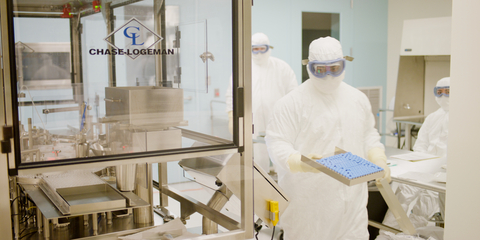The Access to Advanced Health Institute Announces $9.9M Award to Develop a Nasal Spray Influenza RNA Vaccine Through Phase 1 Clinical Trials
The Access to Advanced Health Institute Announces $9.9M Award to Develop a Nasal Spray Influenza RNA Vaccine Through Phase 1 Clinical Trials
SEATTLE--(BUSINESS WIRE)--The Access to Advanced Health Institute (AAHI) announced today that it has been awarded a project agreement worth up to $9.9 million through the Medical CBRN Defense Consortium (MCDC) Other Transaction Authority (OTA) to develop a prototype intranasal bivalent influenza RNA vaccine candidate based on AAHI’s self-amplifying RNA (saRNA) platform that targets both pandemic A(H5N1) and A(H7N9) influenza virus pathogens.
This prototype project was awarded on behalf of the U.S. Department of Defense’s (DoD) Joint Program Executive Office for Chemical, Biological, Radiological and Nuclear Defense (JPEO-CBRND) and the Biomedical Advanced Research and Development Authority (BARDA), part of the Administration for Strategic Preparedness and Response within the U.S. Department of Health and Human Services.
AAHI’s innovative RNA platform, which delivers saRNA bound to the exterior of a nanostructured lipid carrier (NLC), entered first-in-human clinical trials in May 2022 with Phase 1/2 clinical trials of the “AAHI-SC2” COVID-19 vaccine candidate (NCT05370040).
Respiratory viruses such as SARS-CoV-2 and influenza virus remain unique biological threats. Global health and domestic military readiness require effective vaccines that can be easily administered and are rapidly adaptable to emerging threats. Current mRNA vaccines against COVID-19 reduce severe illness and hospitalization, but they require boosters to maintain protection, are not always effective against viral variants, and do not effectively curtail viral transmission. Although influenza vaccines have been available for almost a century, three influenza pandemics have occurred since the 1918 H1N1 pandemic, of which the most recent 2009 pandemic claimed hundreds of thousands of lives worldwide in the first year.
This work with JPEO-CBRND and BARDA will build on AAHI’s initial research and development, partially BARDA-funded, of an intranasal pandemic influenza RNA vaccine candidate in liquid and dry powder presentations. Intranasal vaccine administration could reduce or eliminate the use of needles by the ease of self-administration, potentially increasing vaccine uptake, and by driving key mucosal immune responses not typically induced by needle-administered vaccines.
Preclinical studies supporting the feasibility of AAHI’s intranasal RNA vaccine showed that AAHI’s saRNA vaccine construct against COVID-19 induced robust lung-resident T-cell immunity, coupled with strong systemic immunity. These results were presented on November 8, 2022, at the 10th International mRNA Health Conference in Boston. The findings demonstrated that AAHI’s intranasal COVID-19 RNA vaccine provides an immune stimulatory combination that is key for robust protection and may also help significantly limit viral transmission.
“Stimulating robust systemic and mucosal immunity with rapid-response RNA vaccine technology would be a game-changer for pandemic preparedness,” said Emily Voigt, PhD, Principal Scientist, AAHI RNA Platform Lead, and Principal Investigator for the award. “Our preliminary data show great promise in preclinical models but have a long way to go to demonstrate effectiveness in humans. This prototype project is designed to bridge that gap quickly and effectively.”
AAHI’s saRNA platform supports development of vaccines that not only promise to provide robust, broad, and durable protection against infectious diseases but also can be distributed rapidly worldwide, without requiring deep cold chain or other complex infrastructure. The demonstrated stability of AAHI’s vaccine technologies for months at room temperature, combined with simplified manufacturing requirements, supports self-reliance and sustainability in low-resource areas by simplifying the supply chain logistics required to produce, transport, store, and distribute vaccines.
The 40-month project may culminate in a prototype bivalent vaccine candidate that is effective against both the H5N1 and H7N9 strains of influenza. AAHI plans to expand on this work to develop more efficient and equitably accessible RNA vaccines that can reach people in all areas of the world, regardless of geography or socio-economic status.
This project is supported in whole or in part with federal funds from the U.S. Department of Health and Human Services, Administration for Strategic Preparedness and Response, BARDA, and the DoD JPEO-CBRND's Chemical and Biological Defense Program (CBDP) under OTA #W15QKN-16-9-1002.
Effort sponsored by the U.S. Government under Other Transaction number W15QKN-16-9-1002 between the MCDC, and the Government. The US Government is authorized to reproduce and distribute reprints for Governmental purposes, notwithstanding any copyright notation thereon.
The views and conclusions contained herein are those of the authors and should not be interpreted as necessarily representing the official policies or endorsements, either expressed or implied, of the U.S. government.
AAHI is a nonprofit biotech research institute located in Seattle, Washington, that combines the high-quality science of an academic research organization with the product-development capabilities of a biotech company to help combat some of the world’s deadliest diseases, including COVID-19, cancer, fungal and parasitic infections, and other non-communicable diseases. For nearly three decades, AAHI, previously known as the Infectious Disease Research Institute, has focused on creating immune-enhancing technologies that improve the body’s natural response to disease. Through collaborations, AAHI brings innovation from the lab to the clinic to the people, furthering AAHI’s mission to bring together the best experts, technologies, and platforms to create accessible, high-quality products and solutions. AAHI is working to build a world in which every person has access to tools that harness their immune system and allow them to live a healthy life free of illness and disease. For more information, go to AAHI.org or follow us on LinkedIn.
Contacts
Casey Benadof
Media@aahi.org
(206) 960-1479

